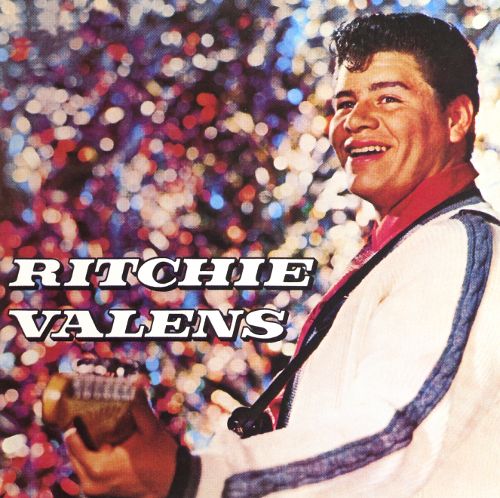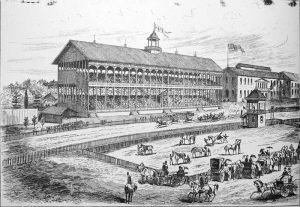It is the late 1950’s in southern California, and a young superstar named Ritchie Valens, whether he knows it or not, is about to change the culture of America forever. In a matter of eight months, the Hispanic student at San Fernando High School just became one of the biggest celebrity musicians of the day.1 After dropping out of school in order to record and tour full time, Richard Valenzuela was making phenomenal Rock N’ Roll music, both on stage and in the studio. While America quickly became obsessed with the undeniably talented teen, nothing could prepare them for his next release.
From the beginning, the odds were against young Richard. He was merely sixteen, and, as a young Latino, there were few opportunities for someone like him in the American mainstream music industry, let alone in Rock ’n Roll. He saw proof of this fact early in his career, facing prejudice and discrimination at every turn. He was even forced to change his name to Ritchie Valens in order to make it easier for his fans to pronounce—a compromise that gave way to controversy and anger from his family.2 Ritchie realized that, even though he was opposed to the changing of his name, it would be a smart move for him as a musician. But even after his family name was taken from him, he refused to let go of his heritage. In fact, it seemed that he tightened his grip.
Ritchie wanted to do something to pay tribute to his Latino culture. With the assistance of Bob Keane of Del-Fi Records, he decided he would combine the two worlds that he was now so heavily a part of, by turning the Spanish tune “La Bamba” into an upbeat rock song. Only knowing English, Ritchie had to learn the lyrics of the traditional Mexican folk song phonetically. After countless takes in the studio, he recorded the song on a two-track record with a second soon-to-be hit Oh, Donna.3
Ritchie released the track and promptly shook up America. Most people had no idea what the song was about, but, for one of the first times in modern music history, they didn’t care. The charismatic rhythm of the song combined with Ritchie’s unique voice; it was impossible to dislike it, and the song spread like wildfire, taking his career to new heights.
Seeing Ritchie perform was a spectacle only few Americans were graced with. His energy and impeccable guitar skills would engage the thousands of audience members from start to finish.4 While the crowd was swooning over every single song, there was nothing like that epic guitar riff that carries the tune of La Bamba.3 As soon as Ritchie’s guitar pick hit his strings, the fans simply could not contain themselves.

Unfortunately, Richard Valenzuela’s career was ended even quicker than it begun. Soon after his explosive rise to fame was sparked, and before he could finish his tour, Ritchie Valens was killed in a plane crash along with fellow artists Buddy Holly and The Big Bopper J.P. Richardson.6 The tragedy triggered nation-wide shock, and the day became known by many as “The Day The Music Died.”7
Although his life was ended much too early, perhaps it was this terrible fate that immortalized him in music history. His music and the rest of Valens’ amazing life inspired the film La Bamba, a timeless and classic film. Ritchie’s brave move in the release of “La bamba” inspired and enabled many other Hispanic artists to begin to make their way into the spotlight, making it much more than just a great song. We see the repercussions still today, through modern Latin Rock bands and all the sub-genres surrounding them, and will without a doubt continue to experience the fruits of the song for decades to come. Needless to say, American music and culture would not be the same without Richard Valenzuela’s audacious contributions.
- Encyclopedia of World Biography, 2004, s.v. “Ritchie Valens.” ↵
- Salem Press Biographical Encyclopedia, January 2017, s.v. “Ritchie Valens,” by Scot M. Guenter. ↵
- “‘La Bamba’ one of the 100 most important American musical works of the 20th century,” Broadcast Transcript. Weekend All Things Considered, NPR, July 15, 2000. ↵
- St. James Encyclopedia of Popular Culture, 2nd ed. “Valens, Ritchie (1941–1959),” Candida Taylor. ↵
- “‘La Bamba’ one of the 100 most important American musical works of the 20th century,” Broadcast Transcript. Weekend All Things Considered, NPR, July 15, 2000. ↵
- Robert Wright, “The Day The Music Died,” Aviation Safety, July 1, 2015. ↵
- “What Went Wrong On The Day Music Died?” Interview by Robert Siegel, Melissa Block, All Things Considered, NPR, February 3, 2009. ↵



163 comments
Lisa Varela
This article was great, the story flowed smoothly. Hearing La Bamba at countless parties I never imagined the meaningful story nor impact the song possessed. It is inspiring that Richard Valenzuela did not allow the prejudices of the time stop him from fulfilling his dream and making his mark on music. It is a tragedy that his life was taken much to soon, the music he could have written and the impact it could have had!
Michael Mandujano
The author produced a well-written article on La Bamba, and this is definitely a popular and catchy track. Learning about Richie Valens personal life and how he produced hit tracks like “La Bamba” and “Oh Donna” are classic. Overall, this was a well-structured article and the Youtube video that was included was clever, as well as the images exhibited throughout the article.
Amanda Perez
This article makes me so happy! I absolutely love reading about success in the Hispanic community. La Bamba definitely gave our culture some positive recognition. It is very inspiring for other Hispanic artists that don’t think that embracing our culture can lead to success. Although his time with us was short, he definitely left a great impact.
Briana Myers
Richie Valens was a very talented musician. His music is loved by many and continues to be loved by the new generations. I did not really know much about Richie Valens before reading this article. It is sad that he had to change his name in order to help him be successful. Even then he never let go of his heritage and used it to help him rise to the top. It is also unfortunate that he could not enjoy his fame for very long as his life was cut short by the plane crash.
Megan Barnett
Before reading this article I had no clue who Ritchie Valens was but I had heard his music before. It is fascinating to learn about what stars went through in order to be successful with a career in music. However, it is disgraceful that Richard was forced to change his name just for his fans. Overall, I think the pictures and video that were included were excellent visual aids and the article went straight to the point.
Brianda Gomez
Growing up, I had always heard my parents talking about the movie “La Bamba.” I really enjoyed reading this well-written article. Before reading, I did not know that this famous song was made by a high school dropout, Richard Valenzuela. His story is truly inspiring, He went against all odds. Although his life ended in a tragic accident he worked hard to become someone who revolutionized music in the American music culture.
Edith De Loera
I believed I was pretty familiarized with Ritchie Valens, but had no clue that he changed his name so that more people could pronounce it. At a young age of seventeen years old, Ritchie had such good intentions with La Bamba: to help diversify both Latin and American cultures. So unfortunate that he passed away, he could have made many more great hits. Loved the article, and the clip of the song definitely adds to it!
Lauryn Hyde
Article does Ritchie Valens story great justice. I had heard the song multiple times but had no idea who it was by. It is sad to think after dropping out of school and trying to make a living off of doing what he loved, making music, he faced discrimination. He did how ever make a name for himself rather quickly. Sad how his life ended however his music is still loved and played today.
Tyler Sleeter
Interesting article. I am not familiar with Ritchie Valens but I have heard the song. It is sad that he had to change his name to get a record deal but I am glad he did not allow them to completely take away his Hispanic heritage and allowed him to do La Bamba. I had heard about the plane crash that killed the musicians and it was a terrible loss to the music industry. It was interesting to me that he did not know Spanish but had to learn the song phonetically.
Maria Callejas
No wonder this article is nominated for best storyteller! It is a great story and structure. As I said in my first comment for this article, there is no song as iconic as La Bamba. It is a song for everyone and anyone. It is truly saddening to see how Ritchie’s career and life ended so shortly, it can be compared with Selena’s life. Such young talent lost. Great article, best of luck!